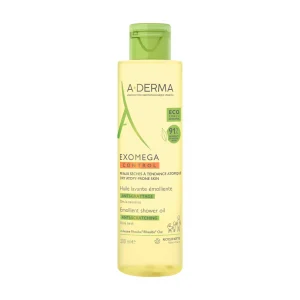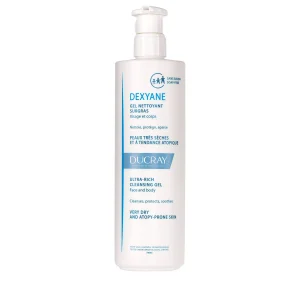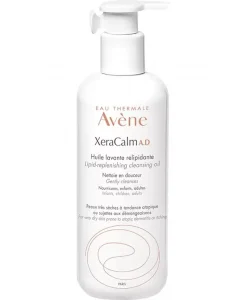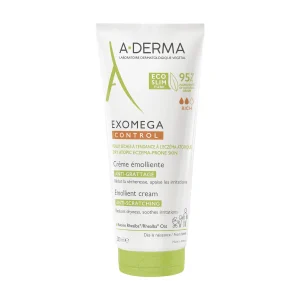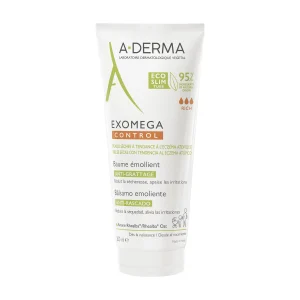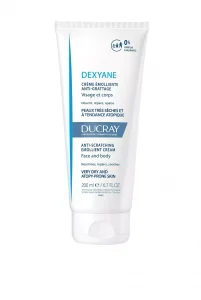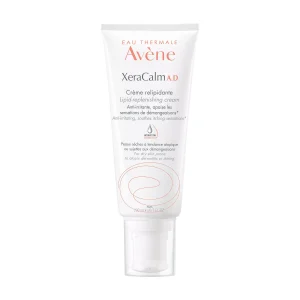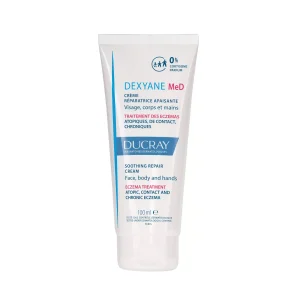
Living with eczema means you are familiar with the difficulties associated with inflamed, dry, itchy skin. What you may not expect is the discomfort that can occur when your skin has a visible flare-up. You may even have had your share of inappropriate questions, such as “Is eczema contagious?” To find out the answer, we reached out to the dermatologist Dr. Ahmed Eghlileb, who will give us his take on this common question.
Why do you get eczema?
Eczema is a skin condition characterized by red, itchy rashes on the skin. It is also called dermatitis. Eczema can be triggered by many things, from allergies to contact with irritating material. And these triggers can vary greatly from person to person.
The most common symptoms are thick, cracked, scaly skin and red or brownish-gray patches that can appear anywhere but are most likely to develop on the hands, feet, ankles, wrists, neck, upper chest, eyelids, and inside the elbows and knees. Eczema can also appear as small, oozing bumps that can crust over when you scratch them, and the scratching itself can leave the skin raw, tender, and swollen.
Several things can trigger eczema symptoms. They can vary from person to person.
The most common triggers are:
-
- Irritants – such as soaps and detergents, including shampoos, dishwashing liquids, and bubble baths.
- Environmental factors or allergens – such as cold, dry weather, humidity, and more specific things like dust mites, pet hair, pollen, and molds.
- Food allergies – such as cow’s milk, eggs, peanuts, soy, or wheat allergies.
- Certain materials worn next to the skin – such as wool and synthetic fabrics.
- Hormonal changes – women may find their symptoms worsen in the days leading up to their period or during pregnancy.
- Skin infections.
What makes eczema worse? According to Dr. Ahmed Eghlileb, symptoms worsen when the air is dusty, if you wear woolen clothes, with new furniture, in case of infection, and non-regular use of moisturizers or by exposure to any material that may be irritating to the body.
Is eczema contagious or not?
Although researchers do not yet know all the reasons why a person may develop eczema, they are certain that it is not contagious. Dr. Ahmed Eghlileb affirms that eczema itself is not contagious.
There is no way that being around someone with eczema will suddenly cause you to develop the skin condition. Skin infections, on the other hand, are contagious. If you have eczema and are constantly scratching your skin, you risk causing skin breakdown. This opens the door to infections, as we all have bacteria on our skin, and when you break the top layer, the bacteria has the potential to cause an infection. This infection can be contagious, but not eczema itself. In fact, the inflammation that underlies eczema can increase your risk of skin infection.
Another question that may arise is, “Is eczema contagious to babies?” Again, Dr. Ahmed Eghlileb insists that eczema is never a contagious disease.
The fact that eczema tends to run in families can make it seem contagious to an outsider. Many people with eczema have a family member who also has eczema, asthma, food allergies, or other allergies. Because you share various genes with people who are physically related to you, these conditions can run in your family, which can make eczema look contagious when it is not.
What types of treatments can help control eczema flare-ups?
So clearly eczema is not contagious, but wouldn’t it be nice to avoid flare-ups and the inevitable misconceptions? While this is easier said than done, there are some things you can do to keep eczema flare-ups as few and far between as possible.
- Wash your skin with non-irritating cleansers.
Because people with eczema have sensitive skin that can be dried out and irritated easily, the cleansers you use must be designed for sensitive skin.
It is also best to avoid scented cleansers. People with eczema are often sensitive to fragrances, so it is generally advisable to choose fragrance-free products whenever possible.
Here are some fragrance-free cleansers to look for:
A-Derma Exomega Control Emollient Shower Oil
Ducray Dexyane Ultra-Rich Cleansing Gel
Eau Thermale Avène XeraCalm A.D Lipid-Replenishing Cleansing Oil
- Moisturize your skin.
Because your skin is dry and itchy, it’s a good idea to apply moisturizing products to keep it moist. Creams and ointments ease inflammation and put water back into your skin to help it heal. Keeping your skin moisturized with a dense cream or ointment helps relieve irritation and soothe flare-ups that may occur. It also keeps the itchy feeling at bay and prevents scratching. Itching can make your eczema worse.
Products containing glycerin, and lactic acid can also help draw water into your skin. You’ll use them when your skin is wet, such as after bathing, to help retain moisture.
So what are the best eczema creams to moisturize, strengthen and protect against flare-ups? Here’s what we suggest:
A-Derma Exomega Control Emollient Cream
A-Derma Exomega Control Emollient Balm
Ducray Dexyane Anti-Scratching Emollient Cream
Eau Thermale Avène XeraCalm A.D Lipid-Replenishing Cream
- Treat the eczema lesions on your skin.
Because eczema damages the skin barrier, it leaves the skin open to bacterial invasion. If the rash becomes infected, it can appear and feel worse. To avoid this, if you have eczema lesions, we suggest you use the following product that treats and promotes the disappearance of these lesions, limiting their recurrence.
Ducray Dexyane MeD Soothing Repair Cream
- Identify your triggers and avoid them.
Eczema can be triggered by factors like pets, molds, certain foods, pollen, cold, dry air, stress, and respiratory infections such as the common cold or flu. Dr. Ahmed Eghlileb also recommends avoiding contact with irritating materials such as dust, grass, and wool.
A final word on why eczema is not contagious
In conclusion? Eczema is not contagious. If you are bothered by your dry, itchy skin, you and those around you should not worry about passing your eczema on to someone else. If your skin becomes infected, whether from itchy eczema or by other means, that infection can be passed on to someone else through skin contact, but not the underlying condition of eczema itself.
You can talk to a dermatologist about all the ways you can manage eczema, including moisturizing as often as possible and doing your best to keep it moist.
Daily skin care, use of soothing emollients, and regular visits to a dermatologist can help keep this itchy, embarrassing condition under control.
Last Updated on February 16, 2024

